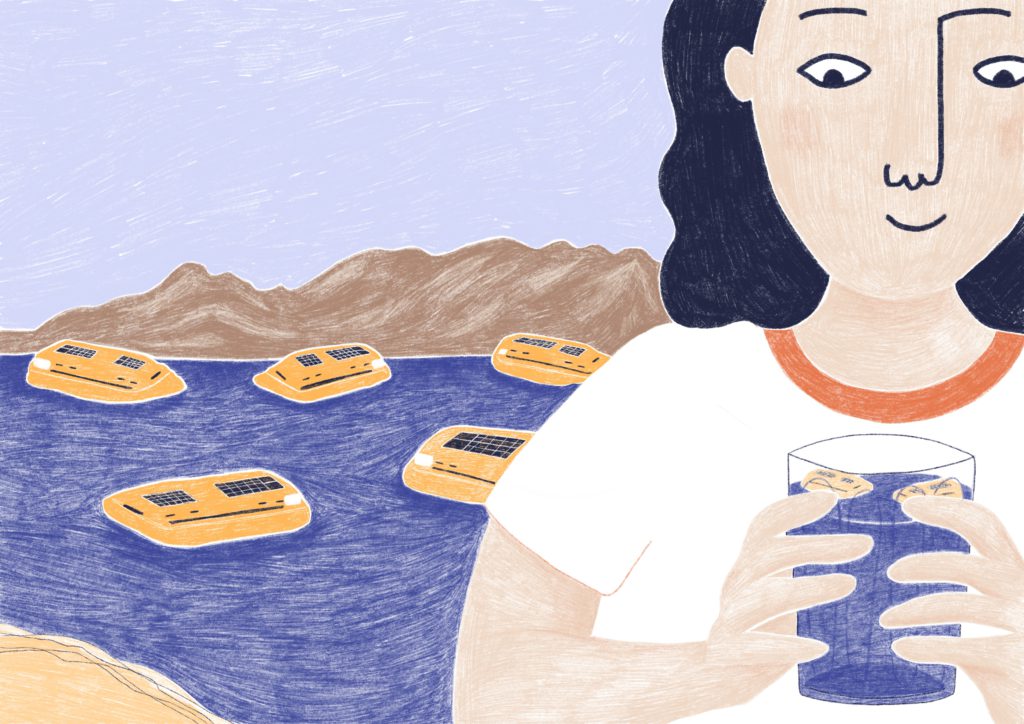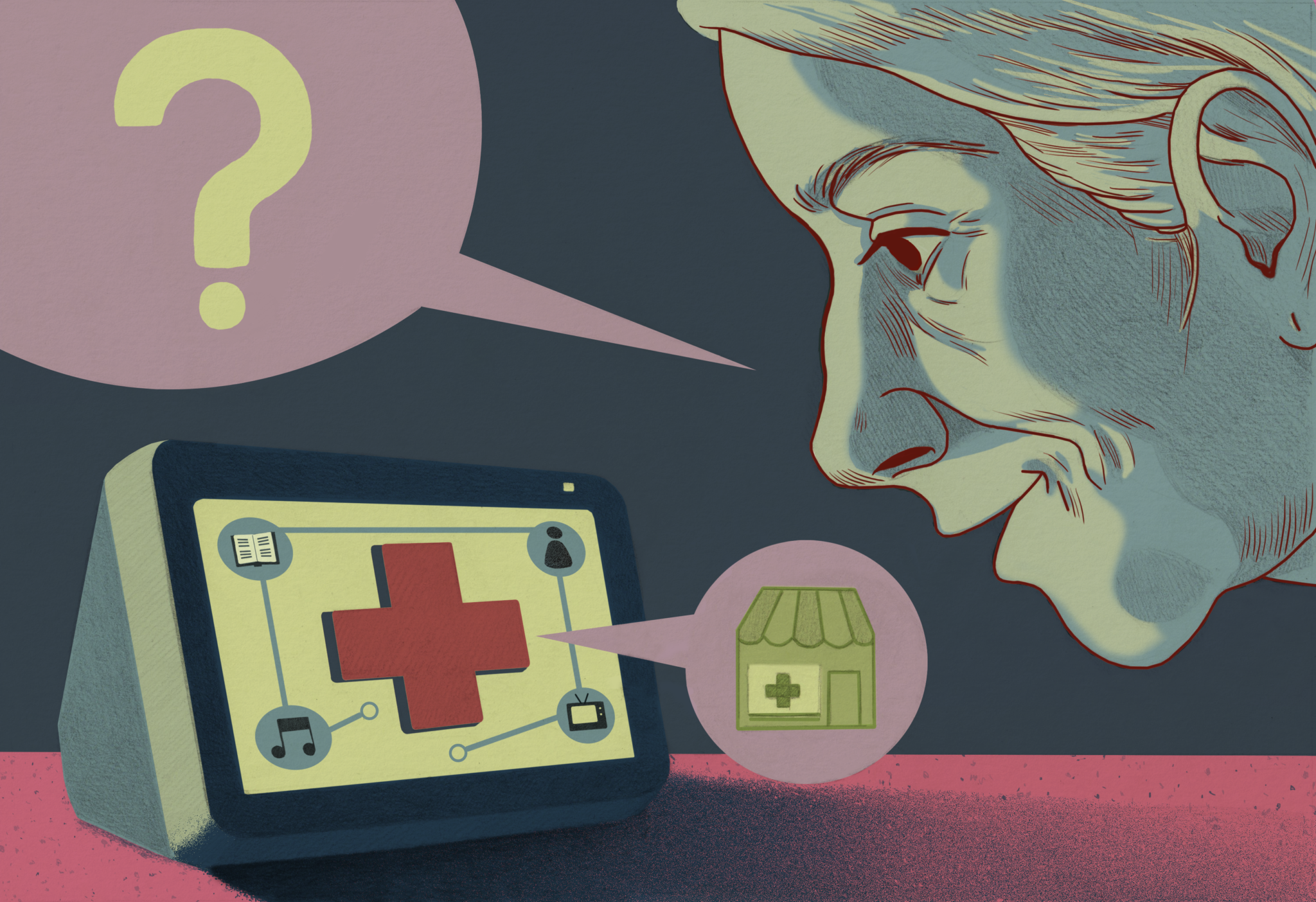
Agathe Duffour
Description
Oneka mechanically turns seawater into freshwater using only renewable energy from ocean waves, with no GHG emissions. Their goal is to provide sustainable and affordable freshwater to remote coastal areas or for emergency relief applications.
The IceCube unit was developed during the US DOE Waves to Water Prize. Oneka won the Grand Prize for the largest quantity of water, best quality and fastest assembly. It has been deployed in Florida (USA) and in Nova Scotia (Canada).
Context
The United Nations estimates that by 2025, 1.8 billion people will lack access to potable water due to growing populations and climate change. Remote coastal communities and islands worldwide face severe water scarcity challenges due to limited freshwater sources, heavy reliance on unreliable rainwater, and high transportation costs. Inadequate infrastructure often leads to inefficient water use, while climate change has exacerbated the problem through increased natural disasters, such as hurricanes, typhoons, and flooding. These disasters damage infrastructure, contaminate freshwater sources, and disrupt transportation routes, leaving communities without reliable access to clean water. Consequently, there is an urgent need for alternative solutions to ensure a consistent and safe water supply. Desalination solutions, when powered by renewable energy, offer a resilient and reliable water source, helping these communities adapt to the growing threat of climate-induced natural disasters. Furthermore, water scarcity has severe health implications, including waterborne diseases and poor sanitation.
Oneka addresses this issue with its IceCube unit, a 1.5-meter diameter buoy that harnesses the energy of ocean waves to mechanically convert seawater into freshwater. No external power source is required; solar panels are used to gather real-time performance data online.
Wave energy is the most dense energy source on Earth, providing a more constant and predictable supply than solar or wind power. Each IceCube unit can produce up to 1000 liters of freshwater per day. It can serve as a primary water source for remote islands with modest water needs or be used in disaster scenarios where local residents are trained to operate the buoy, reducing reliance on methods such as trucking, barging, or helicopters for water delivery. Oneka Technologies wishes to gather feedback from these communities to refine the design and adapt it even more to their needs.
Technical details & Operations
Oneka turns seawater into freshwater by using only the renewable energy created through ocean waves without emitting GHGs or requiring electricity. Each buoy is anchored on the seafloor. Harnessing the oscillation motion of the waves, as the buoy moves down in the trough, seawater is drawn through a strainer. When the buoy rises with the wave, the seawater is pressurized by a pump. The seawater is then pumped to shore and desalinated using reverse osmosis membranes. The low-salinity brine is discharged back into the ocean and the freshwater is stored in a tank.
This modular desalination technology not only provides a zero-emission, 100% mechanical solution, but has also been designed to operate in synergy with the marine environment. The system produces an eco-responsible brine that is 10% saltier than sea water. The fine mesh of the water intake ensures that fish and other marine species are not affected.
Deployment & Impact
In the aftermath of natural disasters, a consistent freshwater supply would be crucial for emergency response and recovery efforts, ensuring that communities have the water needed for drinking, cooking, and sanitation during critical periods.
Using wave-powered desalination, Oneka provides a constant and renewable source of freshwater, crucial for coastal communities. This safe, sustainable water supply not only meets immediate needs, but also supports long-term stability. Empowering local residents with training and resources enables them to respond quickly in the event of a disaster, strengthening the resilience and self-reliance of the whole community. What’s more, the community doesn’t need to dispose of supply-related waste, such as single-use water bottles. Environmentally-friendly desalination technology works in harmony with ocean ecosystems without causing pollution. Furthermore, by providing reliable water sources and creating local jobs, this solution also promotes regional economic growth and strengthens social stability, guaranteeing long-term benefits for coastal populations. Taken together, these benefits underscore the potential of this solution to transform water access and sustainability for coastal communities.
Although Oneka has deployed its IceCube unit in two locations to obtain performance data, the IceCube units have not been used in a commercial context to date. They’re keen to find partners interested in working with them to deploy their solution in the field and give them feedback so that they can further adapt it to their needs (ie. maintenance, deployment steps, etc).





